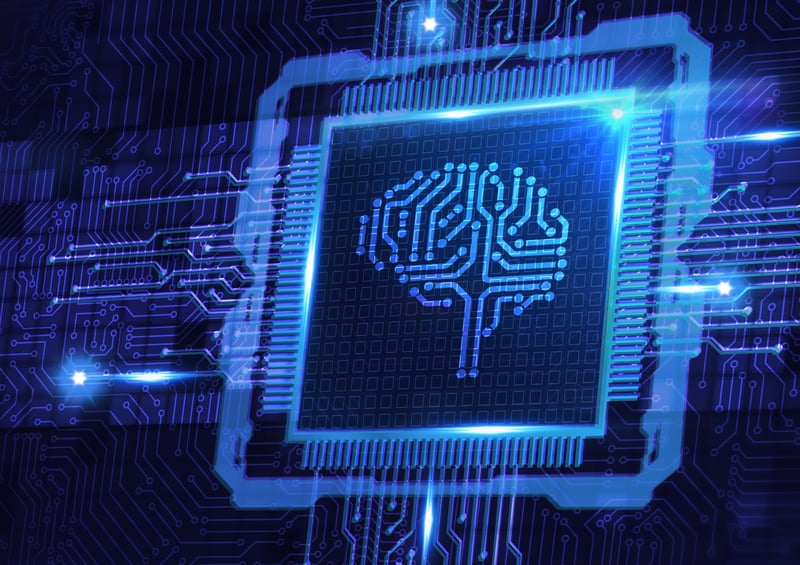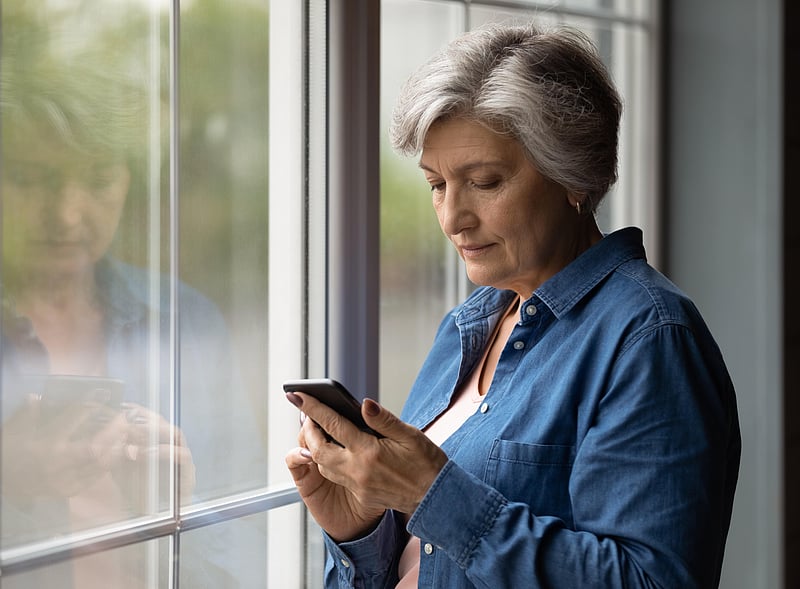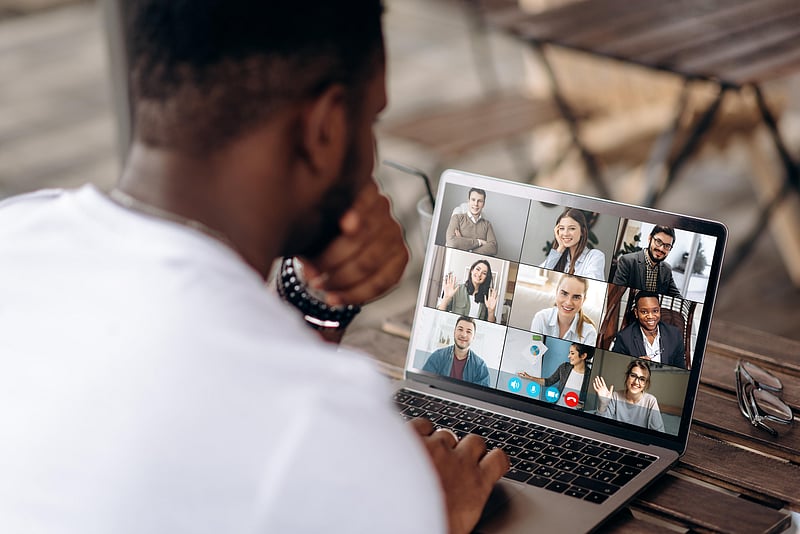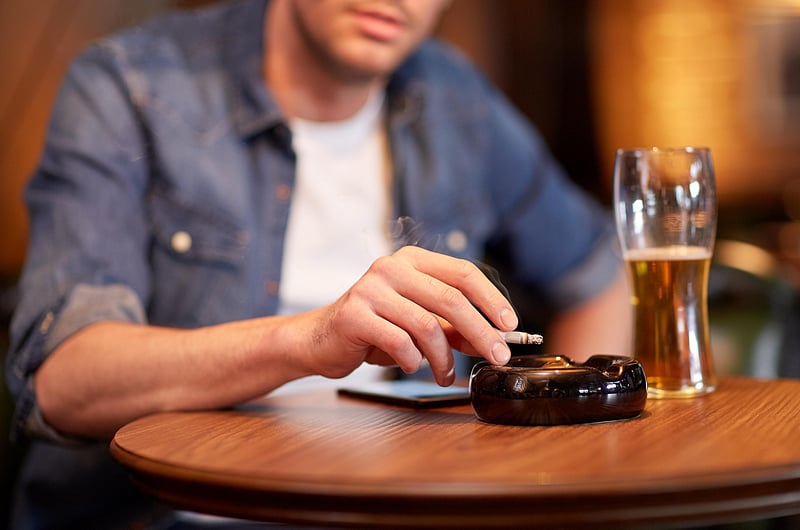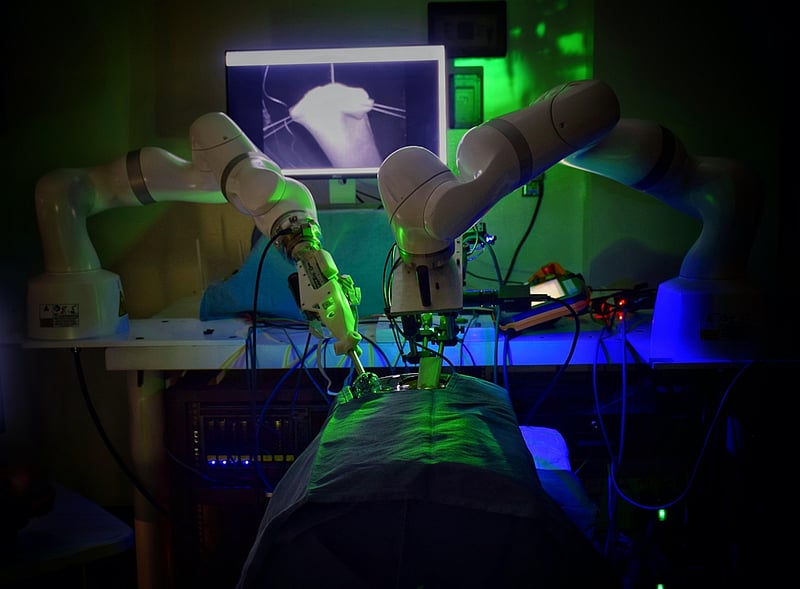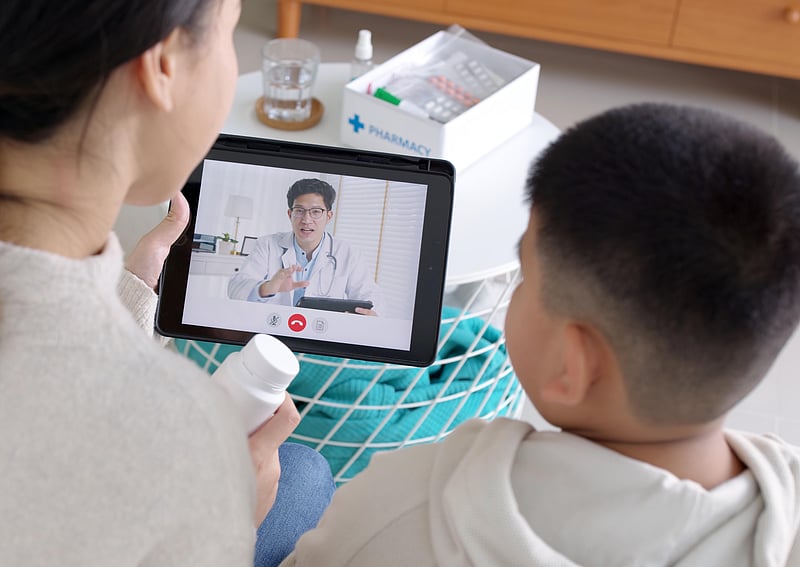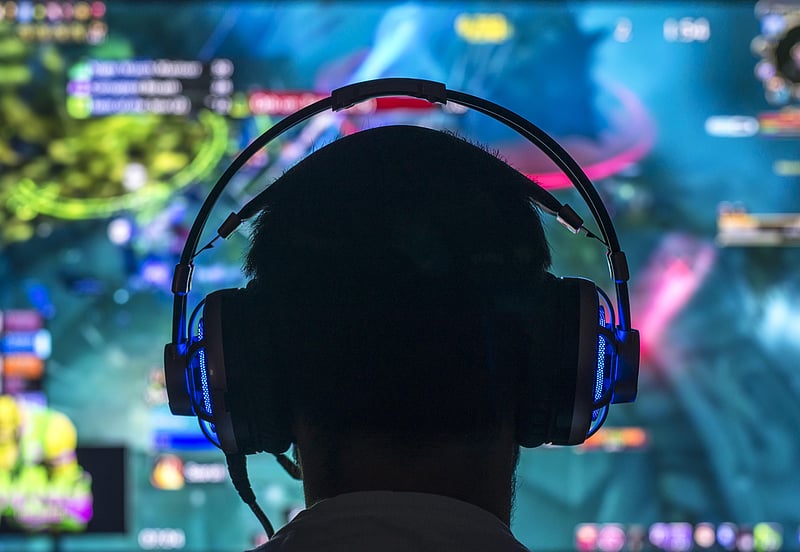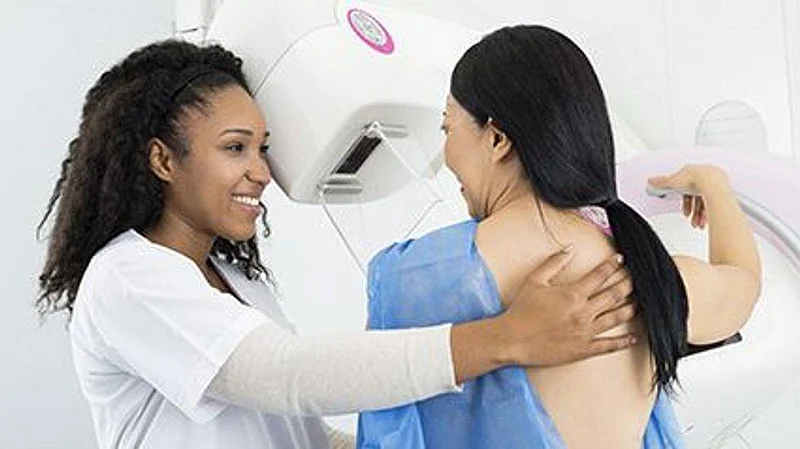Manténgase sano!
Resultados de su búsqueda "Computer-Related".
Resultados de noticias de salud - 28
Each hour a person spends squinting into a smartphone or staring at a screen increases their risk of nearsightedness, a new evidence review suggests.
Every daily one-hour increment in digital screen time is associated with 21% higher odds of myopia, researche...
- HealthDay Reporter
- Dennis Thompson
- |
- February 25, 2025
- |
- Página completa
AI might not always be your most accurate source of health information, especially when it comes to cancer care, new research finds.
Two new studies assessed the quality of responses offered by AI chatbots to a variety of questions about cancer care.
One, published Aug. 24 in
A new study finds that people working with artificial intelligence (AI) systems can be lonely, suffer from insomnia and drink more heavily after work.
In the study, published online June 12 in the Journal of Applied Psychology, the researchers noted these finding...
- HealthDay Reporter
- Steven Reinberg
- |
- June 13, 2023
- |
- Página completa
ChatGPT, the AI chatbot everyone is talking about, can often give reliable answers to questions about breast cancer, a new study finds. But it's not yet ready to replace your physician.
The big caveat, researchers said, is that the information is not always trustworthy, or offers only a small part of the story. So at least for now, they said, take your medical questions to your human doct...
- HealthDay Reporter
- Amy Norton
- |
- April 10, 2023
- |
- Página completa
If you spend hours a day scrolling on your smartphone or tablet, you might get "tech neck."
"Humans are upright creatures, and our bodies aren't designed to look down for long periods of time, which puts extra pressure on the cervical spine,"said Dr. Kavita Trivedi,
- HealthDay Reporter
- Cara Murez
- |
- February 17, 2023
- |
- Página completa
A ransomware attack at one of the country's largest hospital chains disrupted care at hospitals from Seattle to Tennessee last week.
The attack on CommonSpirit Health, the
Staring at a computer screen endlessly can lead to dry, irritated, tired eyes and headaches.
But there's a quick fix.
Just look away from the screen every 20 minutes. Do this for at least 20 seconds, and look about 20 feet in the distance.
Experts have suggested the 20-20-20 rule for a long time. No...
- HealthDay Reporter
- Cara Murez
- |
- September 27, 2022
- |
- Página completa
With online medical visits growing in popularity, a new study offers some reassurance: Diagnoses made via video are usually on the money.
Mayo Clinic researchers found that of preliminary diagnoses made during video appointments at their centers, 87% were later confirmed during in-person visits.
The caveat is, the accuracy varied somewhat according to the type of medical condition: ...
- HealthDay Reporter
- Amy Norton
- |
- September 7, 2022
- |
- Página completa
Zoom meetings became the lifeblood of many workplaces during pandemic, but a new study points to a downside: They may limit employees' capacity for creative thinking.
In experiments with workers in several countries, researchers found two broad phenomenon: Coworkers te...
- HealthDay Reporter
- Amy Norton
- |
- April 27, 2022
- |
- Página completa
Artificial intelligence (AI) may be able to identify alcoholics at risk of relapsing after treatment, researchers say.
Patients often return to heavy drinking during and after treatment, and may require multiple tries before they can achieve long-term abstinence from
A new artificial intelligence approach can predict if and when heart patients might die of sudden cardiac arrest far more accurately than a doctor can, and could improve survival rates, according to its developers.
"Sudden cardiac death caused by
Sick people seeking lifesaving care in the United States could fall victim to a hidden part of Russia's war on Ukraine -- vicious cyberattacks aimed at sowing disruption, confusion and chaos as ground forces advance.
Cybersecurity experts warn that attacks launched against Ukrainian institutions have the potential to spill over into America's health care systems, potentially endangering p...
- HealthDay Reporter
- |
- March 11, 2022
- |
- Página completa
It's crucial to keep preschoolers away from screens and other sources of light in the hour before bedtime if you want them to get a good night's sleep, researchers say.
That's because even a little bit of light exposure can trigger a sharp drop in the sleep-promoting hormone melatonin, according...
- HealthDay Reporter
- Robert Preidt
- |
- January 31, 2022
- |
- Página completa
A robot performed challenging keyhole surgery on pigs without any human help in what could be a major step toward fully automated surgery on people.
"Our findings show that we can automate one of the most intricate and delicate tasks in surgery: the reconnection of two ends of an intestine," said senior study author Axel Krieger. He is an assistant professor of mechanical engineering at J...
- HealthDay Reporter
- Robert Preidt
- |
- January 28, 2022
- |
- Página completa
The pandemic has made Zoom meetings a daily reality for millions. For many, having to watch their own face in a meeting is the worst part.
But that's not true for everyone, new research shows.
"Most people believe that seeing yourself during virtual meetings contributes to making the overall experience worse, but that's not what showed up in my data," said study author Kristine Kuh...
- HealthDay Reporter
- Cara Murez
- |
- January 4, 2022
- |
- Página completa
Chatting with your doctor via video about your health issues works just as well as an in-person office visit, at least when it comes to managing chronic illnesses, a new review suggests.
Replacing office visits with video checkups delivered results that were just as effective for patients being treated for conditions like diabetes, respiratory illnesses, chronic pain, heart problems and n...
- HealthDay Reporter
- Dennis Thompson
- |
- January 3, 2022
- |
- Página completa
Children and teens who use livestreaming gaming platforms may be bombarded with influencer-endorsed ads for energy drinks, junk food and alcohol, new research shows.
"This type of marketing can normalize high-fat, high-sugar and high-sodium foods at a time in young viewers' live...
- HealthDay Reporter
- Robert Preidt
- |
- December 16, 2021
- |
- Página completa
The misconception that girls are less interested than boys in computer science and engineering begins at a young age in the United States.
And it's one reason for the gender gap in those career fields, according to a new study.
In surveys of more than 2,200 U.S. children and teens in grades 1 through 12, researchers found that half -- 51% -- believed girls are less...
- HealthDay Reporter
- Robert Preidt
- |
- November 29, 2021
- |
- Página completa
Call it the great pandemic sit-down.
As COVID-19 turned daily commutes into shuffles between rooms at home, and Netflix replaced time spent at the gym or playing sports, Americans have been sitting a lot more. Now a new study suggests it may be putting their mental health at risk.
"We knew COVID was going to affect our behavior and what we could do in lots of weird, funky ways that ...
- HealthDay Reporter
- Robert Preidt
- |
- November 11, 2021
- |
- Página completa
Modern Americans get much less physical activity than their forebearers did 200 years ago, and increasing reliance on technology is a major reason why.
That's the finding from researchers who used data on falling body temperature and changing metabolic rates in the United States to measure de...
- HealthDay Reporter
- Robert Preidt
- |
- October 29, 2021
- |
- Página completa
Even in normal times, getting regular exercise and spending less time on screens can be good for kids. So it should come as no surprise that researchers discovered that kids who exercised more and used technology less during the pandemic had better mental health outcomes.
"Both as a pediatrician and as a mother, it was obvious that the circumstances of the pandemic -- school closures, res...
- HealthDay Reporter
- Cara Murez
- |
- October 5, 2021
- |
- Página completa
In a health emergency, social media giants like Facebook can be both quagmires of misinformation and sources of social support and reliable guidance, a small, new study suggests.
Researchers surveyed 32 Facebook users weekly for eight weeks. All were asked about their online experiences during March and April 2020, when COVID-triggered lockdowns unfolded.
The Facebook users -- ...
- HealthDay Reporter
- Alan Mozes
- |
- October 4, 2021
- |
- Página completa
Whether you're a kid or a college student, you'll learn more with interactive activities, discussions, movement and even AI-enhanced technologies than you will just sitting still and listening, a new study suggests.
Learning methods that work best are hands-on, as well as what the researchers called "minds-on" and "hearts-on," using emotional and social support, the findings showed.
- HealthDay Reporter
- |
- September 30, 2021
- |
- Página completa
Artificial intelligence (AI) might be able to spot the next virus to jump from animals to humans, Scottish researchers report.
Identifying diseases before they become a threat to humans is challenging, because only a few of the nearly 2 million animal viruses can infect humans. By developing machine learning models, researchers can analyze genetic patterns of viruses that might infect peo...
- HealthDay Reporter
- Steven Reinberg
- |
- September 30, 2021
- |
- Página completa
An artificial intelligence tool could help radiologists spot breast cancer on ultrasound images and reduce the need for extra testing, new research suggests.
"Our study demonstrates how artificial intelligence can help radiologists reading breast ultrasound exams to reveal only those that show real signs of breast cancer, and to avoid verification by biopsy in cases that turn out to be be...
- HealthDay Reporter
- Cara Murez
- |
- September 24, 2021
- |
- Página completa
Radiologists still outperform artificial intelligence (AI) when it comes to breast cancer screening, a new paper shows.
Many countries have mammography screening programs to detect and treat breast cancer early. However, examining mammograms for early signs of cancer means a lot of repetitive work for radiologists, which can result in some cancers being missed, the authors explained.
<...- HealthDay Reporter
- Robert Preidt
- |
- September 3, 2021
- |
- Página completa
Take a work break: A small, new study suggests that getting out of your chair every half hour may help improve your blood sugar levels and your overall health.
Every hour spent sitting or lying down increases the risk for metabolic syndrome and type 2 diabetes, the study authors said. But moving around during those sedentary hours is an easy way to improve insulin sensitivity and reduce t...
- HealthDay Reporter
- Steven Reinberg
- |
- August 16, 2021
- |
- Página completa
Want to see a temperamental tween or teen act happier?
The formula is simple, a large international study suggests.
"Screen time should be replaced by 'green time' for optimizing the well-being of our kids," said study author Asad Khan, an associate professor in biostatistics and epidemiology at the University of Queensland in Brisbane, Australia.
That advice stems from survey...
- HealthDay Reporter
- Denise Mann
- |
- August 16, 2021
- |
- Página completa



